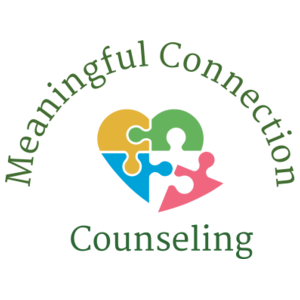Are You Struggling To Feel Connected In Your Relationships?

Do you have a hard time coping with recurring unhealthy relationship patterns triggered by past trauma? Does balancing your personal and work life make it hard to relax and focus on the present moment? Do you often feel overwhelmed by intense emotions and react in a way that surpasses what the situation would typically evoke?
Perhaps you have an overarching feeling that you can’t trust those around you. Maybe you have nightmares or flashbacks that leave you feeling as if you’re reliving a traumatic event. Or you could be afraid that reaching out for support or comfort will result in an angry response or no response at all.
All you can think about is finally getting to the point where you don’t feel triggered by everything. You just want to be happier and healthier in mind and body.
The Impact Of Trauma/PTSD Extends Beyond Feelings Of Sadness And Hopelessness
Experiencing trauma/PTSD is never easy and symptoms vary from person to person. Trauma symptoms can affect you emotionally, socially, and physically.
Maybe it’s difficult for you to regulate your emotions, leading to heightened fear, irritability, anxiety, and persistent sadness or tearfulness.
Socially, you may encounter challenges such as a pervasive sense of emptiness or hopelessness and a feeling of being different from those around you, often resulting in avoidance of relationships. This social withdrawal can be accompanied by avoiding intimacy and the perception that you are damaged in some way.
Physically, you may be experiencing stomach aches, headaches, chest pains, and dizziness. A heightened reactivity is also common and can make it difficult for you to relax as your system is constantly on high alert. Living with trauma/PTSD is a difficult and lonely journey, marked by unpredictable challenges that can feel overwhelmingly heavy. At Meaningful Connection Counseling, my role as a therapist is to provide support, helping to lighten the load and guide you on a path toward processing and healing from trauma/PTSD.
Trauma—A Common Human Experience
Traumatic events are an unfortunate part of the human experience, ranging from car accidents to the profound loss of a loved one. 70 percent of adults have encountered at least one traumatic event in their lifetime—that’s approximately 223.4 million people. (1)
Not all traumatic events carry the same weight, and some can be profoundly impactful. An experienced trauma therapist can offer you the support and resources you need to feel more like yourself again.
Life Is Filled With Various Elements That Contribute To Trauma/PTSD

Trauma can originate from various sources, and for some people, it stems from childhood. Developmental trauma often begins with caregivers that are unable to fully meet our emotional, and sometimes physical, needs even though they are doing the best they can.
Traumatic experiences are typically categorized into two groups:
Big “T” Traumas encompass significant events like war, mass shootings, sexual trauma, and the pandemic. Small “t” traumas are influenced by everyday occurrences where needs are not adequately met. These smaller traumas can manifest through experiences such as bullying, criticism, mockery, or seeking attention from caregivers or others and being met with negative responses or indifference.
Trauma/PTSD Therapy Can Help You Heal From The Hurt You Carry Deep Inside
In our sessions, I aim to create a safe and welcoming space where you can freely share your thoughts. This environment is non-judgmental, offering you the chance to feel seen and heard.
Trauma therapy serves as an opportunity to explore and validate your experiences, helping you understand that your brain and body are reacting normally to unmet needs. Throughout the process, you’ll learn grounding skills to stay present while working to heal underlying issues. Our collaborative approach ensures warmth and gentle support, progressing at a pace your system can comfortably handle.
Our Approach To Trauma and PTSD Therapy
Deep Brain Reorienting (DBR) is a specialized processing therapy grounded in neuroscience, focusing on the midbrain where trauma is initially felt. DBR starts by giving you the tools you need to ground yourself in the present moment, encouraging mindful attention to bodily sensations. It involves processing events or triggers using present-day cues, avoiding the need to relive the worst experiences. This approach emphasizes feeling emotions without attaching them to specific experiences, promoting healing without getting stuck in detailed thoughts about past trauma.
EMDR with Structural Dissociation Theory combines Eye Movement Desensitization and Reprocessing (EMDR) with Structural Dissociation Theory, directly addressing your defense mechanisms.
This approach is effective for both big “T” and small “t” traumas. EMDR with Structural Dissociation Theory may require additional preparation, including grounding exercises and mindfulness techniques to help anchor you to the present moment as you process past traumas. We typically collaborate with you to help you understand your avoidance strategies and work to provide the entire system with access to adaptive information essential for the healing process.
We also use visualization to create mental images so we can explore and understand your unique mental and emotional landscape. Visualization aids in understanding how your system is set up and responds to various stimuli, offering valuable insights for effective trauma/PTSD therapy.
No matter the modality used during trauma therapy, Meaningful Connection Counseling can help you experience healing, peace of mind, and the confidence to pursue meaningful connections. Every day is a new opportunity for you to lead a fulfilling life.
Perhaps You Still Have Some Questions About Trauma Therapy…
What if it is hard to talk about what happened?
With newer trauma modalities, you can use recent triggers to access the stored emotional responses from past traumas. You can then process them without needing to go over every detail of the traumatic events. Much of the processing is done at the body/brain stem level and doesn’t need to involve upper-level thinking/imagery/talking.
What if I don’t remember specific details about my trauma?
Trauma processing modalities such as Deep Brain Reorienting allow us to access old trauma through current triggers that share the same stored emotional/physical responses without needing to remember or talk about the original experience.
What happens if I feel worse after starting to work on my trauma?
We will collaborate throughout your treatment to select the modalities that best suit your needs. We always go at a pace that your system can tolerate. We will work on skills to help you between sessions. Generally, clients find working in this way to be more gentle and supportive. Healing isn’t linear, but If you stick with the process, you can experience a greater sense of balance and healing.
With Trauma Therapy, You Can Embrace A Positive, Happy You

Your traumatic experiences do not define you. If trauma/PTSD symptoms are preventing you from living a fulfilling life, therapy with Meaningful Connection Counseling can offer you understanding, support, and solutions.
To find out how my approach to trauma therapy can help you or your loved one call (480) 332-8597 or schedule a free 15-minute consultation.
(1) https://www.thenationalcouncil.org/wp-content/uploads/2022/08/Trauma-infographic.pdf
Request Appointment